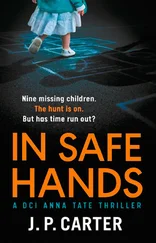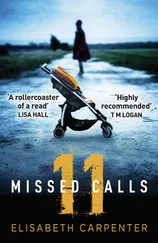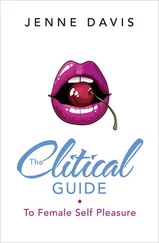I was six inches from running into the sliding glass door when I realized that it wasn’t going to open. Looking closer, I saw how hopeless it was: the seam between the two glass panels wasn’t even a seam, it was just a line painted on solid metal, depth cues added with a touch of darker paint. Still, there had to be a way in. I knew this because I knew people at the compound who were Wallybaffles. They were special people: they managed to do even the small things, the Kandy Kakes consumption and the programmed vomiting, with a sort of lightness and finesse. They made the things they did look blameless and right. While I was at the Church they had showed up for weekly inspections, and that meant that they must have a way of getting inside the Wallyform and then back out again. I hit the glass not-door with my skinny fists again and again, then I went around to the windows in the front and hit them, too. I remembered from movies and TV that a human being striking a window could cause it to shatter, but the glass was too strong, or I was too weak. My body didn’t do much anymore when I put it to things. I didn’t even make much noise pounding my fist against the glass: the ones that turned to look dismissed me almost before they had swiveled their heads. I might have been a painting of a hysterical female, paused in motion and screaming decoratively. But my throat was going raw, and my hands hurt dully.
Then one of the fake Wallys inside seemed to notice me for the first time. He tilted his Wallyhead up and looked at me through his real eyes. Then he pointed toward a spot behind him, behind him and to the left.
I WENT AROUND TO THEside of the building. It was gray cement all the way up, cement bricks stuck together, and some dry grass on the ground, except where it had been worn away. A portion of the wall opened out and a Wally came into the outdoors. He was of average height, or at least not of a height anybody would comment on. I had to assume he was the one who had motioned to me.
“Hi,” I said.
“It’s you,” he said.
This was true, but how could he know that?
“Yes,” I said.
“You must remember me,” said the Wally with a pleading tone that I recognized, though I couldn’t recognize him.
I looked at him in what I hoped was an encouraging way. I wanted to recognize him. I wanted to give him that, counterfeit it, if necessary. My invertebrate face felt soft and confused by the order.
“We were at the Randall compound,” he said. “I saw you every day in the corridor leading to the Testery. We looked at each other. Sometimes you with your mouth open like you had something to say to me. Once in the Big Room you gave me one of your Kakes. It was a nice gesture, I thought, even though nobody really wants more Kakes.”
Had I done that? I wasn’t much of an expert on myself anymore.
“Faces are a big part of how I remember people,” I suggested.
“Oh, right,” said the Wally, fumbling with his Hospitality Hat.
“You get used to the masks,” he said, “I mean really used to them. Without them, I mean, there’s a rawness,” he added. He grabbed at the base of his throat and dug under the flesh-colored rim. He pulled it up and over, turning it inside out in the process, talking the whole time.
He added: “It gets so the normal air chaps your face.”
With his mask off, he looked like someone I could have recognized but didn’t at all. He was young and rounded, his freshly shucked skin glistening pink in the light of the streetlamp. He had a pouty little mouth, compact like a nose, and two swaths of hairless fuzzy cheek rising up on either side of his face. He looked nice. I could have known him if I had ever met him. He looked friendly. I didn’t want to mislead him, but wasn’t it kinder to pretend? It would be better if we all could come home to the wrong house, sit down with strangers to a dinner that wasn’t ours, treat them like family because we didn’t know any better. Then hug all their strange bodies good-night and go to the wrong bedroom for a thieved sleep. There would be nowhere you could go, nowhere you could run to, where you wouldn’t be among family and friends. You would run from home, to home, inevitably. I should give that gift to this boy, whoever he was. And then I would climb him to safety, like a ladder.
“What was your name again?” I asked decisively.
“Chris,” he said.
“Chris,” I said, “of course. I remember you. Possibly you’re the only thing I remember from those days. I looked for your ghost many times during the lessons, but probably you were always out of range. I hope you understand that I gave you that Kandy Kake only because there was nothing else around to give. If there had been other things, I would have given you something you liked much, much more.”
“I thought that was the case!” he said, pleased.
“It was,” I said.
“Look, Chris,” I said, “I’m going to have to ask you for a favor. Someone who looks exactly like me has just done a thing on national television that the Church isn’t going to be happy about. Obviously I’m a loyal, hardworking Eater, just another minus believer trying to choke down my Darker twin and transition the ghost to sole proprietorship. But for right now I need to hide. Can I hide in your product baffles?”
He considered this for a moment, searching my face for duplicity. He seemed to see something in me, whatever it was. Then he let me inside.
I WAS TRYING TO FIGUREout if there was anything in here that would tell me who I was now, why nobody saw me in me, why others saw someone I had never been. Chris still followed me, trailing ten feet behind and probably wanting to ask more questions, but the other Wallybaffles kept working as though I weren’t even there. I passed so close to them that I could smell their sweat mixing with the treated foam plastic of their masks, and still they remained perfectly fixed on their work. I felt like a ghost haunted by another ghost. We wove through the aisles. I watched the Wallybaffles do their graceful shelf-restocking dance. They sank squatting to the floor, reached out, and pulled the product close in toward their chest. They paused, compacted themselves. Then they propelled upward again, to a standing position, from which they proffered the product, gently, to the shelf. From this distance, though, it was clear they weren’t restocking anything. How could they? The products would overflow, choke the shelves. They’d need unstockers to take down the products they had placed, and if anyone from the outside were to see those, it’d all be over. So instead they rose and sank like ocean waves, hoisting product and then bringing it slyly back to the floor, where they would pick it up and hoist it once more.
I tried to find something a Wally’s would sell that might be shiny enough to show me my reflection. Ever since C had failed to recognize me I’d been wondering if there was something newly wrong with the way I looked, if I had maybe begun to transluce or take on an ethereal look because of the ghosting process. The plastic-wrapped meats on their trays of Styrofoam were glossy, but not dark enough to reflect anything apart from my shadow looming over and onto their surface. The canned goods had flat metal ends, but the metal was dull and dark and I didn’t even show up. Nothing in there looked out at me, all the objects stared deeply into themselves. I picked them up and put them back where they were. They were lighter than I expected, though lately I had been finding normal objects weirdly heavy.
Then I noticed the TV screens mounted on the walls. On-screen, an episode of That’s My Partner! was playing itself out, the dancing girls smiling and turning and spinning, first in a front view, then overhead. They spun like sparkly gears around one another, glittering like sharp metal. I looked up at them grinning down at me and it seemed impossible that I was ever there at all. How could I ever have looked so happy, so graceful, so small? They were weightless, made of light. They were the color of the sky at hours in which everyone’s asleep. Then their smiles started to come down: they were looking over at something else.
Читать дальше
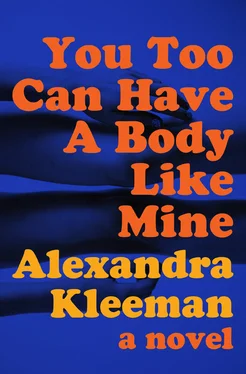

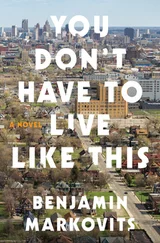
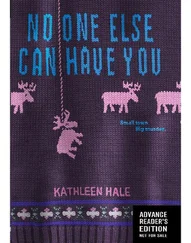
![Ally Carter - [Gallagher Girls 01] I'd Tell You I Love You But Then I'd Have to Kill You](/books/262179/ally-carter-gallagher-girls-01-i-d-tell-you-i-lo-thumb.webp)


